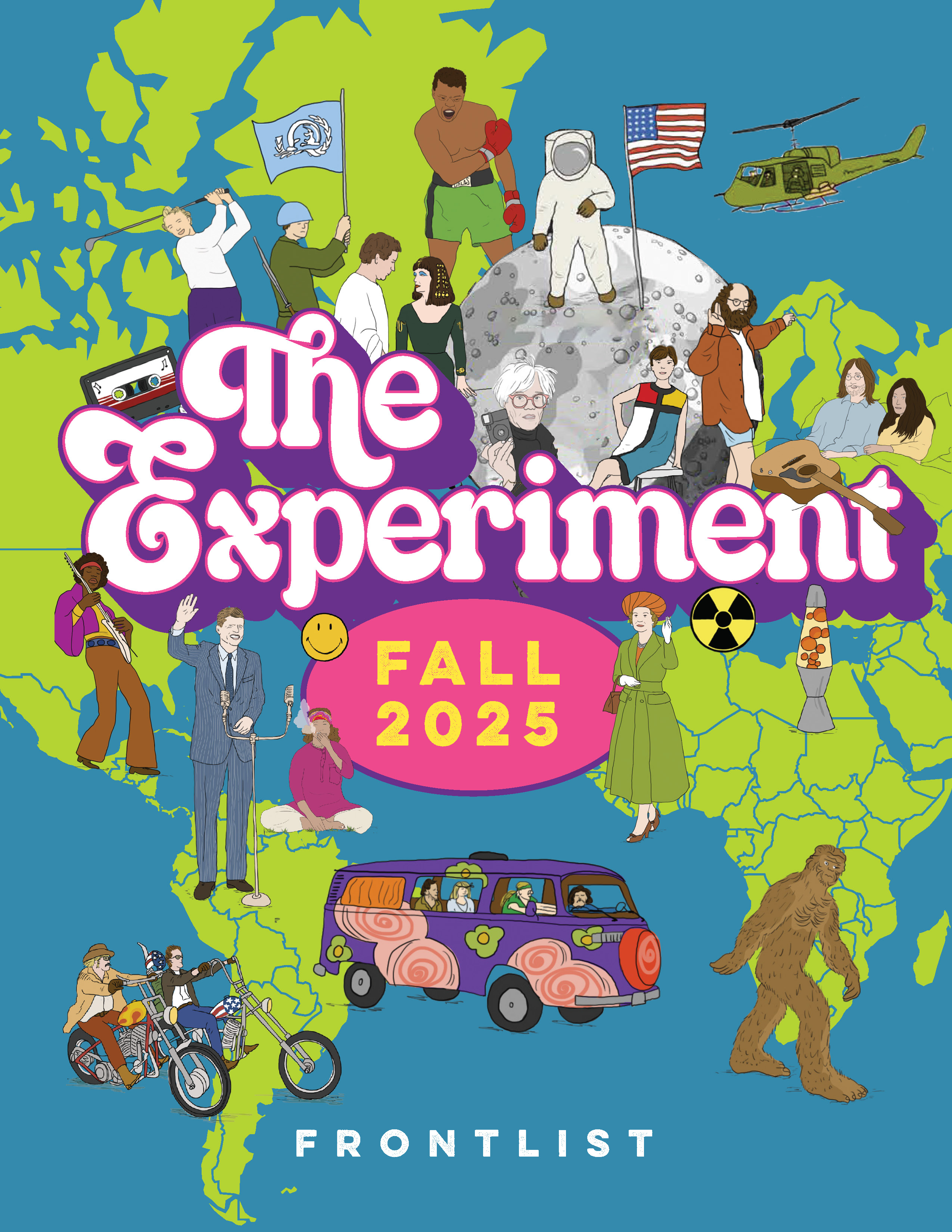 Enlarge Cover
Media/Desk Copy Request
Enlarge Cover
Media/Desk Copy Request
From the Silk Roads to the Berlin Wall, discover the globe-turning history of human migration “Provides essential context to one of today’s most polarizing debates . . . engrossing and instructive—a must-read.”—Sir Richard Branson, founder of the Virgin Group
We are a species in motion—from the first steps of Homo sapiens across Africa to America’s “melting pot.” And when we move—in search of better things, or against our will—our beliefs and skills clash and combine, reshaping society time and again.
In this visionary Shortest History of Migration, Ian Goldin uncovers key moments of cultural exchange while carefully examining empire, slavery, and war. Throughout, we meet famous explorers (Zheng He), exiles (Pablo Neruda), and everyday people in extraordinary circumstances: a Jewish man saved by the Kindertransport, a Japanese gardener who blossomed in Mexico City.
Today, freedom of movement is being curtailed, even as climate change and conflict mobilize people everywhere around the world. Goldin reminds us that passports at every border are a modern invention (he traces the “birth of big brother” to World War I), revealing the folly of trying to halt migration—and proposing commonsense policy instead.
A gripping chronicle of want and wanderlust, this is a moving portrait of humanity—in every sense of the word.
The Shortest History books deliver thousands of years of history in one riveting, fast-paced read.
★ A Financial Times Best Book of the Year for 2024
“A must read for our times . . . . Provides a powerful antidote to the harmful rhetoric around immigration, placing current debates in a historical context. It shows why migrants are essential to make America great again and how migration should be better managed to restore the dynamism of societies.”—Thomas L. Friedman, Pulitzer Prize–winning New York Times columnist
“Ian Goldin’s deep dive into the history of migration provides essential context to one of today’s most polarizing debates. The Shortest History of Migration is both engrossing and instructive—a must-read for anyone seeking a deeper understanding of the critical, yet all too often misunderstood role migration in all its forms has played in humanity’s journey.”—Sir Richard Branson, founder of the Virgin Group
“Few books are timelier. . . Goldin argues that migration has been fundamental to human progress and economic growth, while acknowledging that there are legitimate questions about unregulated immigration policy.”—Andrew Keen, KEEN On podcast
“Excellent”—Martin Wolf naming it a Financial Times Best Book of 2024
“Compulsively readable, trenchantly argued . . . Goldin’s crisp analysis, combined with his thorough research, results in a work that draws clear connections between ancient events and the modern world. His use of an equity lens is extraordinarily effective at uncovering patterns that underly our current discourse.”—Kirkus Reviews, starred review
“Offers insightful history, analysis, and prescriptions for present and future global migrations. . . . deserves attention from policy makers and publics worldwide.”—Library Journal, starred review
“[A] thoughtfully traced and schematic view of a phenomenon that remains a burning issue even though it has been with us since our beginnings. . . . concise, easy to read and eminently timely.”—3 Quarks Daily
“Impressively informative, exceptionally well written, thoroughly 'reader friendly' in organization and presentation. . . a seminal study and an unreservedly recommended pick.”—Midwest Book Review
“The current negative and often ideological discourse around immigration can be extremely discouraging and disheartening. Putting this very human phenomenon into a positive historical, social, cultural, and economic perspective is inspiring and uplifting and makes an important contribution to one of the most critical issues of our time.”—Inroads
“The ideal complement [to despair] . . . addresses the history, consequences, and opportunities of migration . . . cuts through the political rhetoric to look at the facts.”—Financial Times
“Ian Goldin is one of the great authorities on globalization.”—Gordon Brown, former UK prime minister
“Impressively succinct yet wide-ranging . . . convincingly shows that migration has always been an integral part of humanity.”—Hein de Haas, author of How Migration Really Works
“[A]n indispensable guide to our common origins—and our shared destiny.”—Parag Khanna, author of Connectography
“[A] bold and compelling account of the story of migration . . . generally shifts the global picture away from the usual suspects—the USA and Western Europe. There is much to admire in this book for both old hands and newcomers to the subject.”—Robin Cohen, author of Migration: The Movement of Humankind From Prehistory to the Present
“A uniquely informative account of the state of the world in the 21st century. A riveting account of humanity’s most pressing challenges and innovative solutions.”—Steven Pinker, Harvard psychology professor and New York Times bestselling author of Enlightenment Now, on Ian Goldin’s Terra Incognita
“Ian Goldin has written a succinct account of human migration from prehistory to the present, offering a lively introduction to global migration history and trends. He brings attention to large-scale movements, like the mass mobilization of colonial subjects into European armies in World War I and the 18 people million who moved (and the 2 million who died) following the partition of the Indian sub-continent. Goldin acknowledges the costs and often pain of migration while strongly emphasizing its benefits to individuals, communities, countries, and the global economy as a whole.”—Kathleen Newland, cofounder of the Migration Policy Institute
“Across the ages of globalization, humanity has always been on move—traversing vast distances to flee dangers, embrace new opportunities, begin new lives, and, at times, to conquer others. Ian Goldin’s wise and informative account depicts the many dimensions of migration and the complex ways that migration has shaped and continues to shape our world. At a time of vexed debates over the causes, consequences, and politics of migration, this book offers us deep and humane insights.”—Jeffrey Sachs, Columbia University professor and author of The Ages of Globalization





















